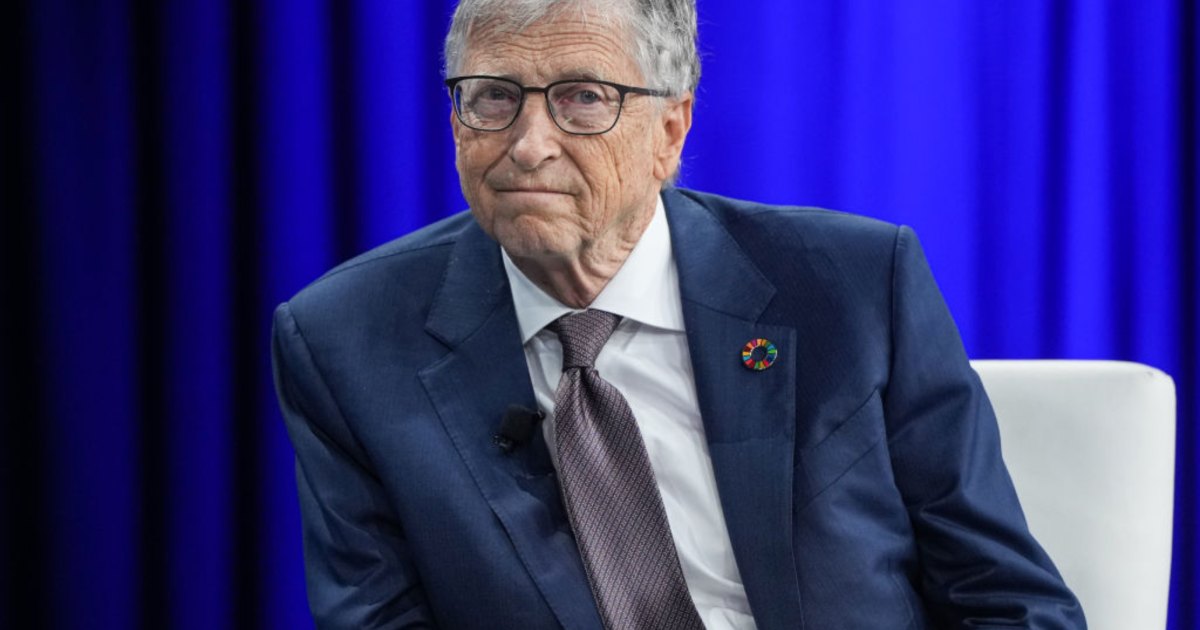Bill Gates Opens Up About His Controversial Connection to Jeffrey Epstein
In a recent interview, Bill Gates candidly discussed his past interactions with the late Jeffrey Epstein, a figure whose legacy is marred by criminal allegations and controversies. As one of the most recognized philanthropists and business magnates in the world, Gates’ association with Epstein has raised eyebrows and sparked intense public debate about accountability in philanthropy. This article delves into the complexities of their relationship and the implications it holds for Gates’ public image and the broader philanthropic community.
The Nature of Their Relationship
Bill Gates’ connection to Jeffrey Epstein dates back to 2011, a time when Epstein was already a controversial figure due to his prior legal issues. Gates has emphasized that his relationship with Epstein was primarily professional, revolving around philanthropy and global health initiatives. Gates met Epstein through mutual acquaintances and was drawn to him due to his extensive network and ability to connect influential people.
However, Gates has since acknowledged that his judgment was flawed. He stated, “I didn’t realize that he was a person of such notoriety. I thought I could use his connections to further my philanthropic goals.” This admission reveals the delicate balance that philanthropists must navigate between collaboration and ethical considerations. Gates has since expressed regret over his association with Epstein, particularly in light of the latter’s criminal activities and the serious allegations against him.
Public Perception and Accountability
The revelation of Gates’ connection to Epstein has led to significant scrutiny of his public image. As a leading figure in global philanthropy, Gates’ credibility is paramount. Critics argue that associating with someone like Epstein, who was accused of trafficking underage girls, raises questions about Gates’ judgment and the values underpinning his philanthropic efforts. This situation highlights the complexities of accountability in the philanthropic sector.
- Trust Issues: Donors and stakeholders may begin to question the motives and integrity of philanthropic organizations if their leaders are found to have questionable associations.
- Transparency: There is an increasing demand for transparency in how charitable organizations operate, including the relationships their leaders maintain.
Moreover, Gates’ admission reflects a broader trend where high-profile individuals in philanthropy must confront the implications of their associations. The challenge lies in maintaining a clear ethical stance while engaging with a diverse range of partners. As Gates himself noted, “I’ve realized that I need to be more careful about who I associate with, especially in philanthropy.”
Epstein’s Legacy and Its Impact
The impact of Jeffrey Epstein’s actions continues to reverberate through various sectors, including finance, politics, and philanthropy. His arrest and subsequent death in 2019 brought renewed attention to the issues of sexual abuse, trafficking, and the exploitation of power dynamics. For many, Epstein’s legacy serves as a cautionary tale about the importance of vigilance and accountability in all areas of life.
In the context of philanthropy, Epstein’s connections to numerous influential figures raise critical questions about the ethics of partnerships. Philanthropists often rely on networks to maximize their impact, but those networks can harbor individuals with troubling pasts. This situation underscores the necessity for due diligence and ethical reflection in philanthropic endeavors.
Lessons for Philanthropy
Gates’ experience teaches valuable lessons for the philanthropic community. Here are a few key takeaways:
- Due Diligence: Philanthropists and organizations should conduct thorough vetting of individuals and organizations they engage with. Understanding the backgrounds and reputations of potential partners is crucial.
- Ethical Standards: Establishing and adhering to a clear set of ethical standards can help guide decision-making and partnerships.
- Public Accountability: Philanthropists should be prepared to address public concerns and questions about their associations. Transparency can help rebuild trust and credibility.
Future Implications for Bill Gates
As Gates continues to engage in philanthropic efforts through the Bill & Melinda Gates Foundation, the implications of his past associations linger. His commitment to global health, education, and poverty alleviation remains strong, but he must navigate the challenges that arise from his controversial connections. Moving forward, Gates has the opportunity to redefine his narrative by emphasizing accountability, ethical partnerships, and a renewed focus on the causes he champions.
In his conversation about Epstein, Gates also highlighted the importance of learning from past mistakes. “I’ve always believed in the power of philanthropy to change the world, but I realize now that we must be vigilant about who we partner with and how we uphold our values,” he stated. This reflection could lead to a more thoughtful approach to philanthropy, one that prioritizes ethical considerations alongside impact.
The Broader Philanthropic Landscape
Gates’ experience with Epstein is not an isolated incident; it reflects a broader challenge facing many philanthropists today. As the landscape of charitable giving evolves, the expectations for transparency and accountability are higher than ever. Philanthropists must navigate a complex web of relationships while maintaining their integrity and commitment to the causes they support.
Moreover, the conversation about accountability extends beyond individual philanthropists. It prompts a reevaluation of the entire philanthropic sector, encouraging organizations to adopt best practices that prioritize ethical standards. This shift can inspire a new generation of philanthropists who are more mindful of their associations and the broader implications of their work.
Conclusion
Bill Gates’ decision to open up about his controversial connection to Jeffrey Epstein is a significant moment in the discourse surrounding philanthropy and accountability. While his past associations raise valid concerns, they also present an opportunity for reflection and growth. By addressing these challenges head-on, Gates can enhance his credibility and reinforce the importance of ethical standards in philanthropy.
As society continues to grapple with issues of trust, power, and responsibility, the lessons learned from Gates’ experiences can help shape a more ethical philanthropic landscape. Ultimately, it is through open dialogue, transparency, and a commitment to accountability that philanthropists can truly make a positive impact on the world.
See more Business Focus Insider Team

